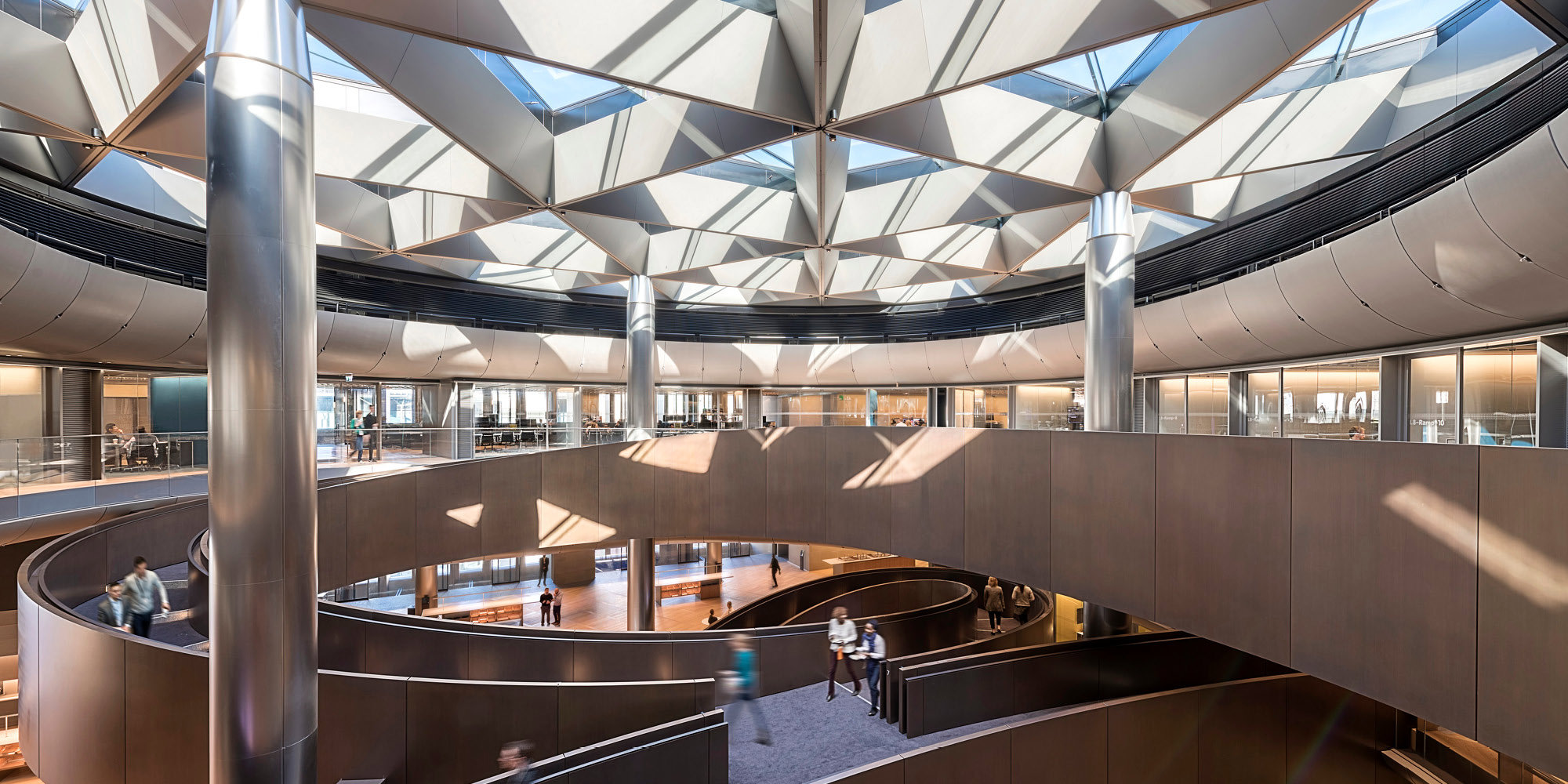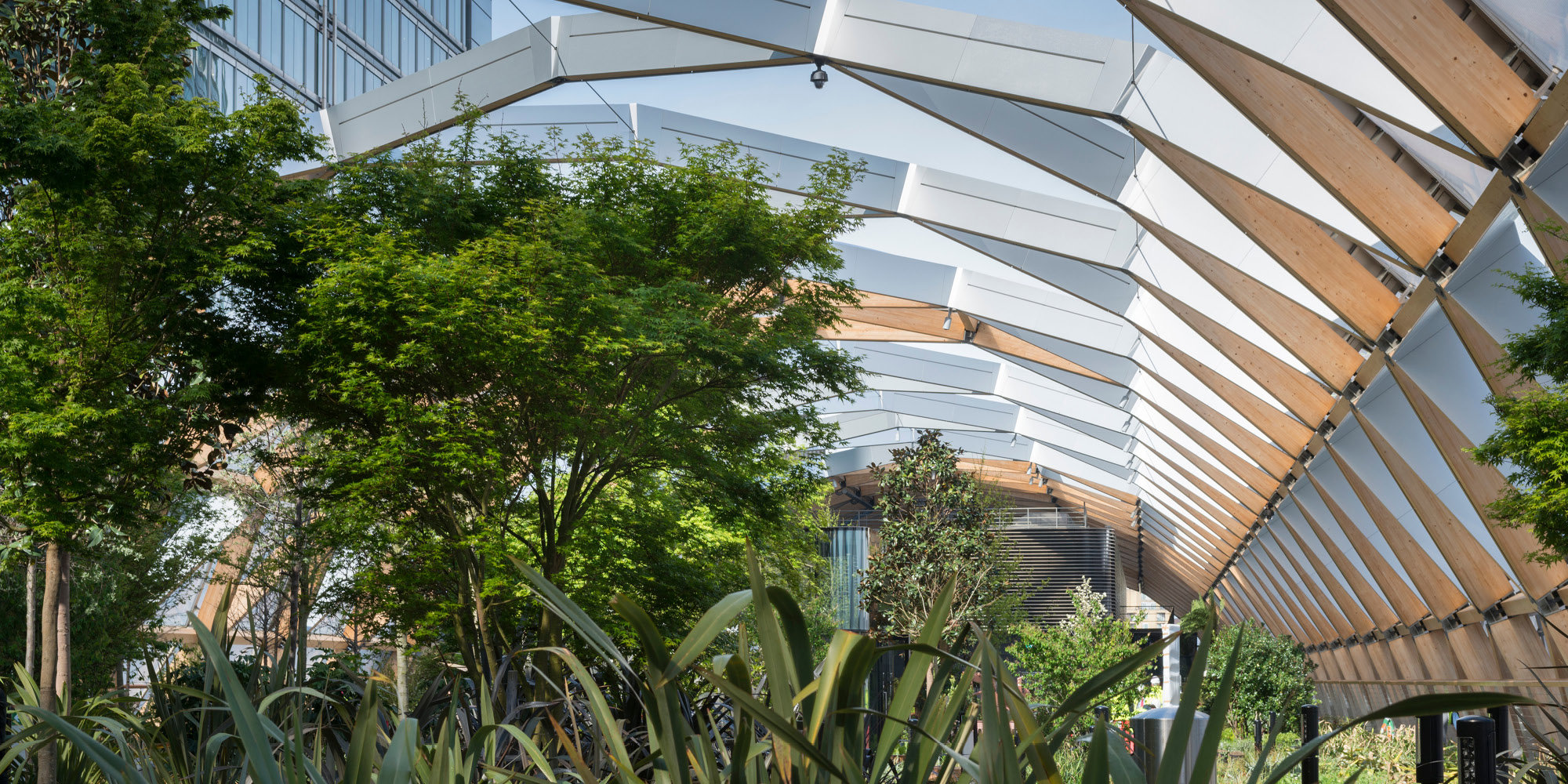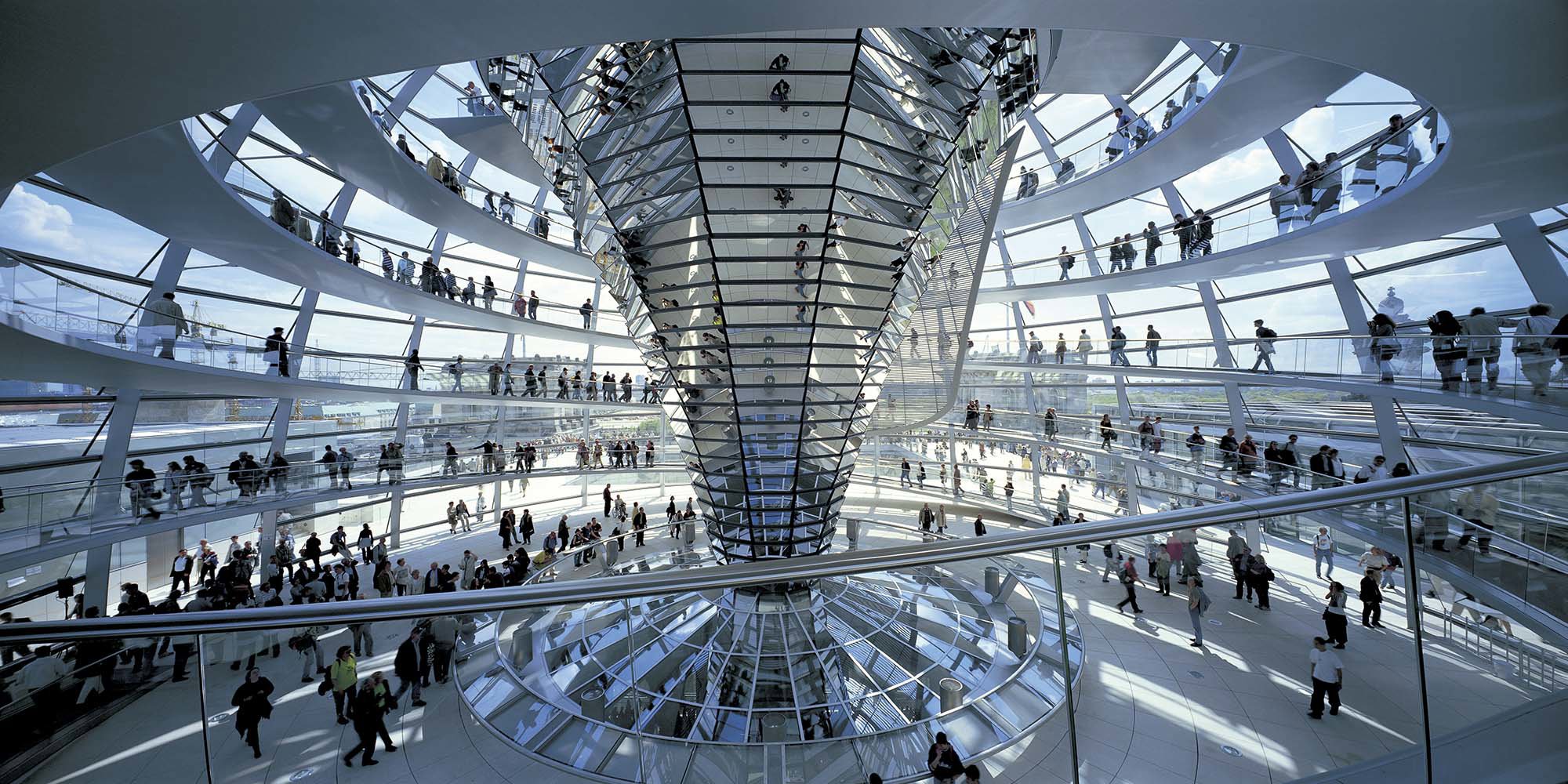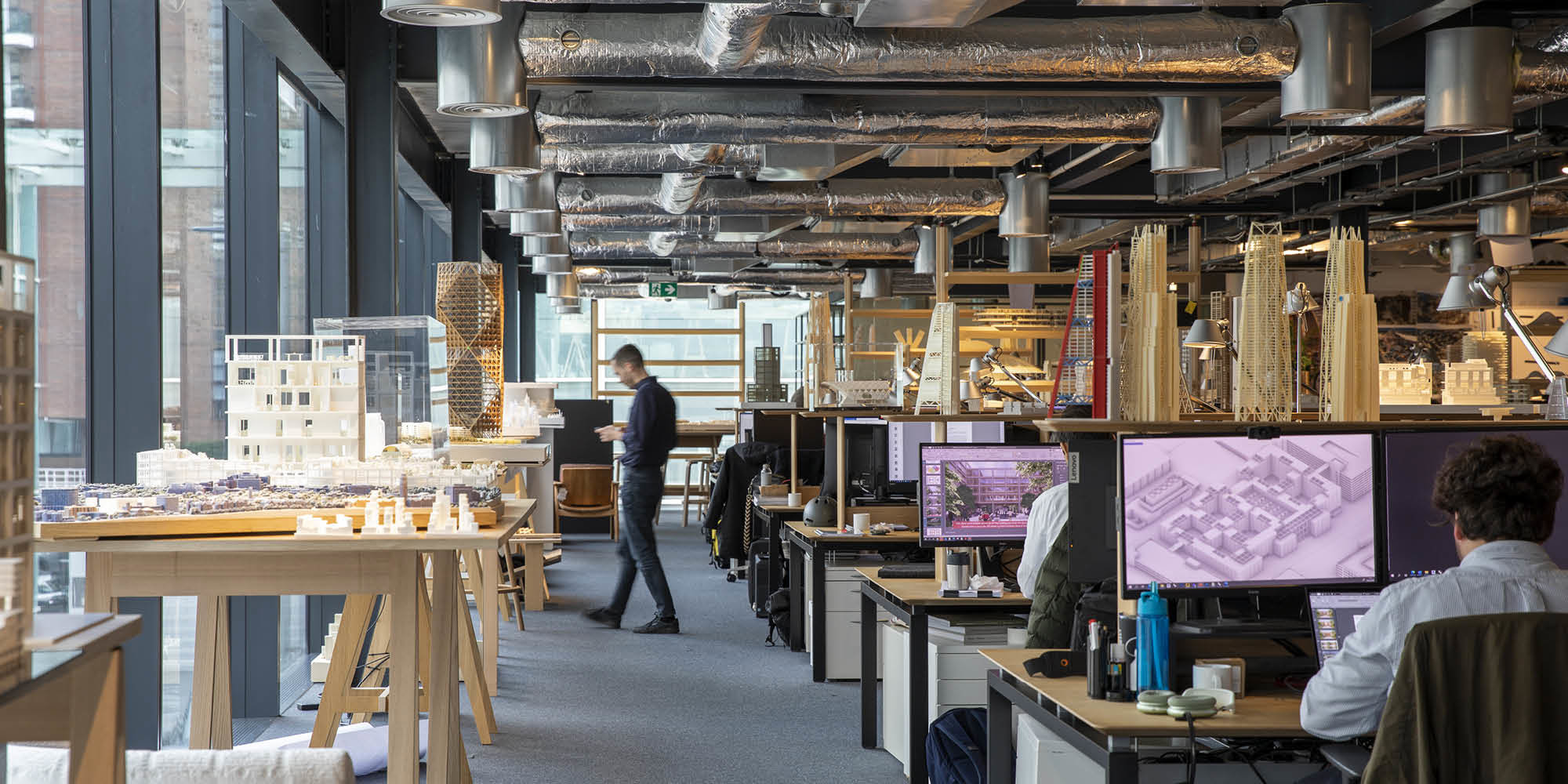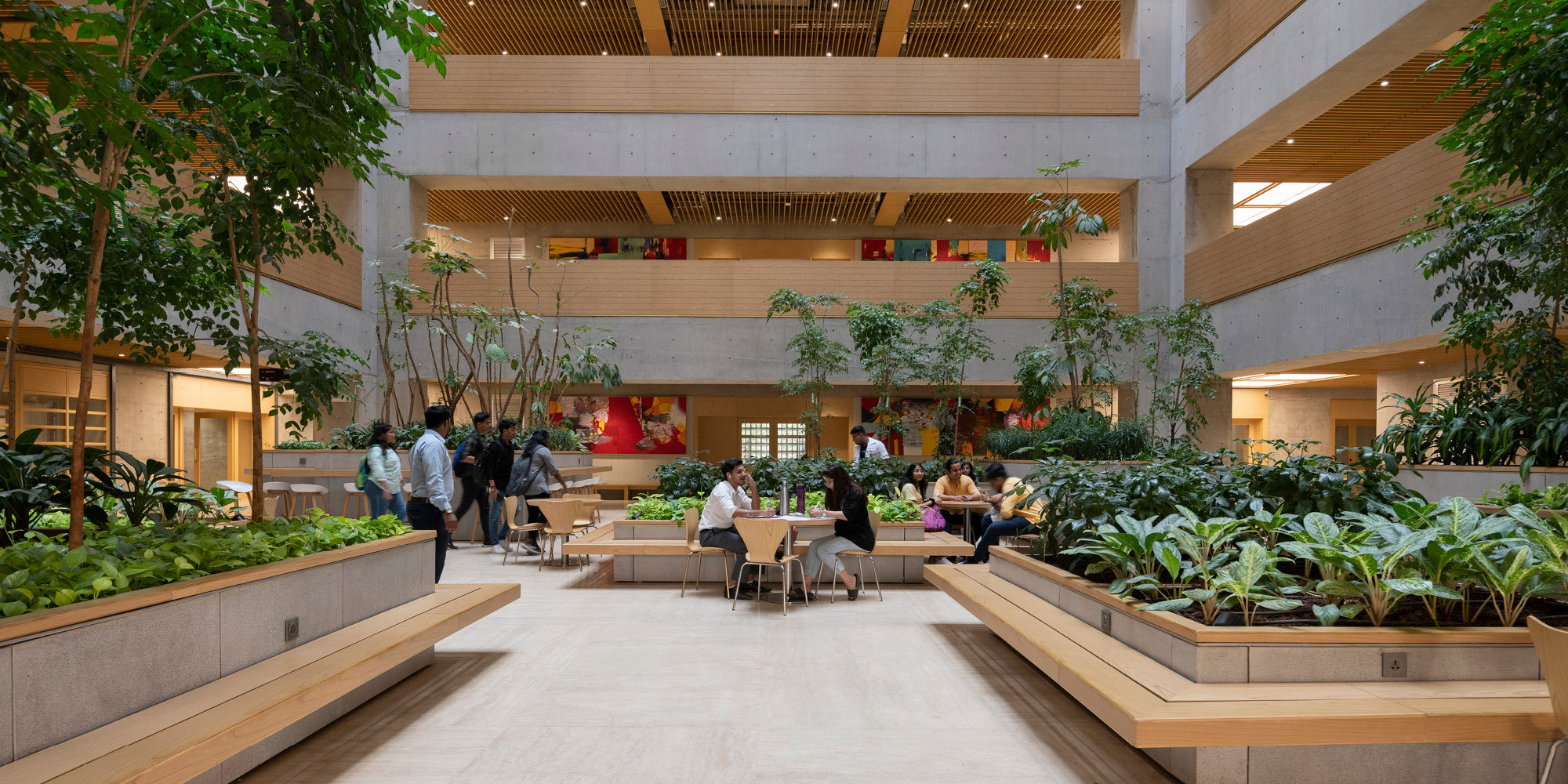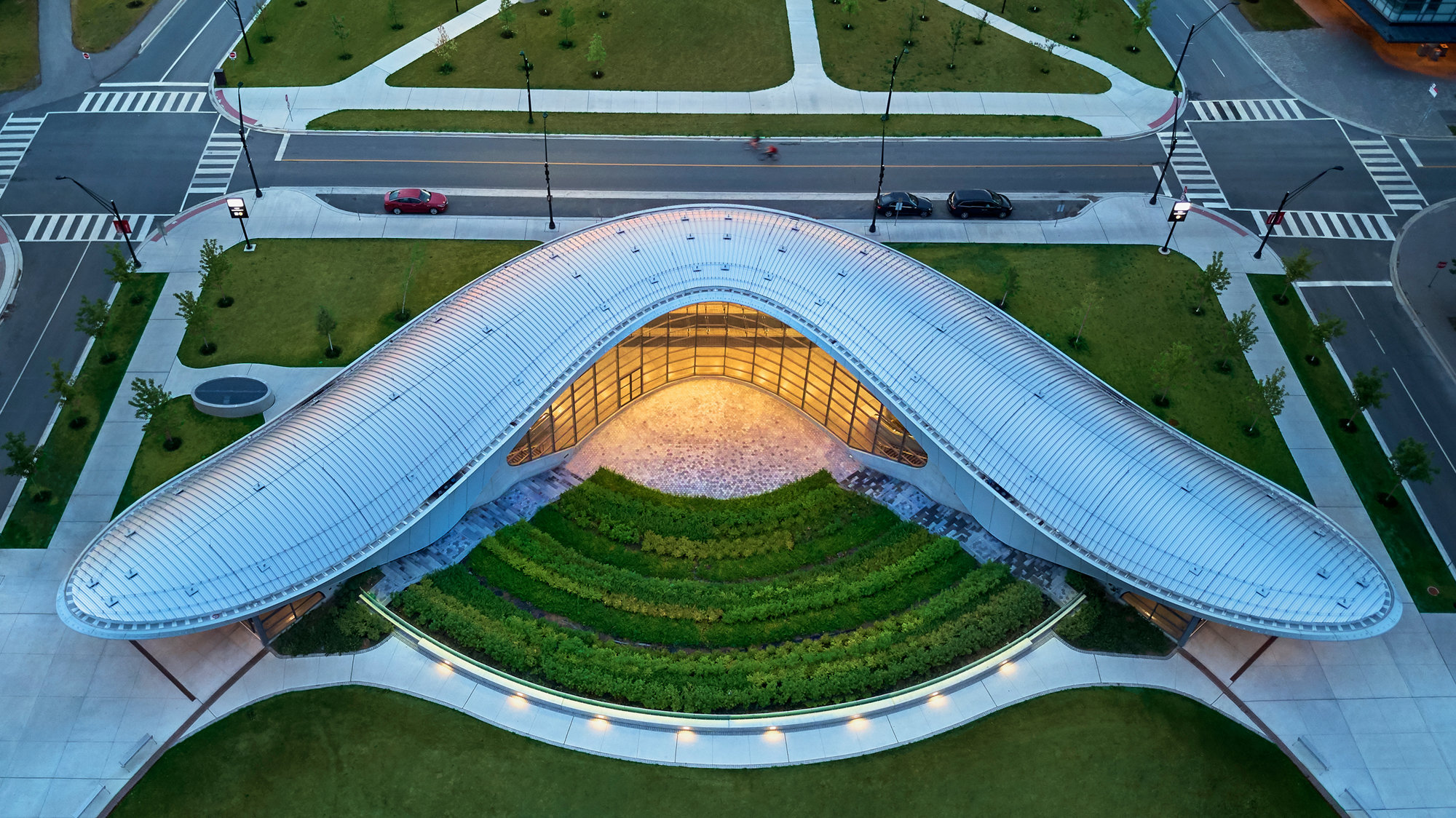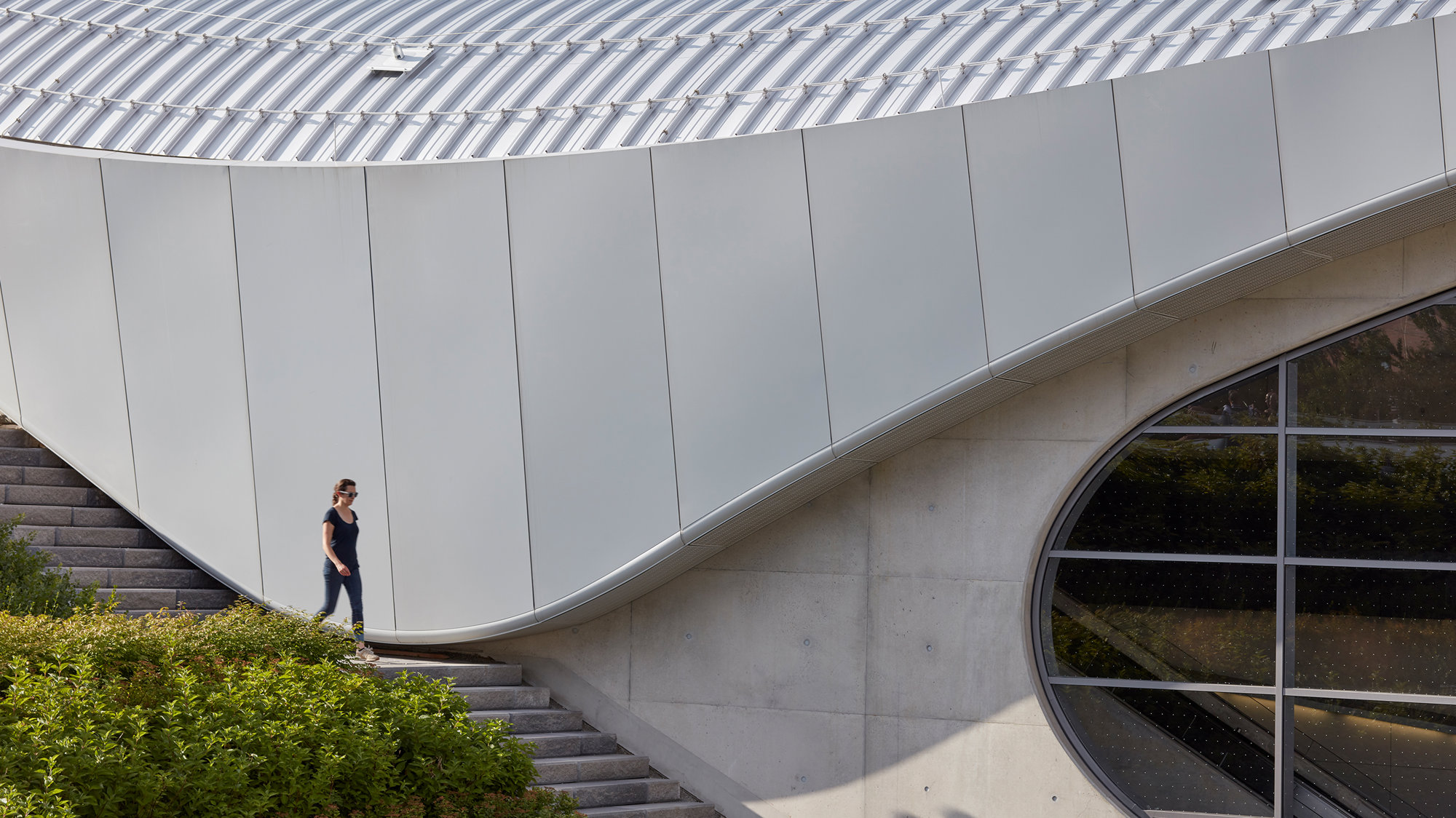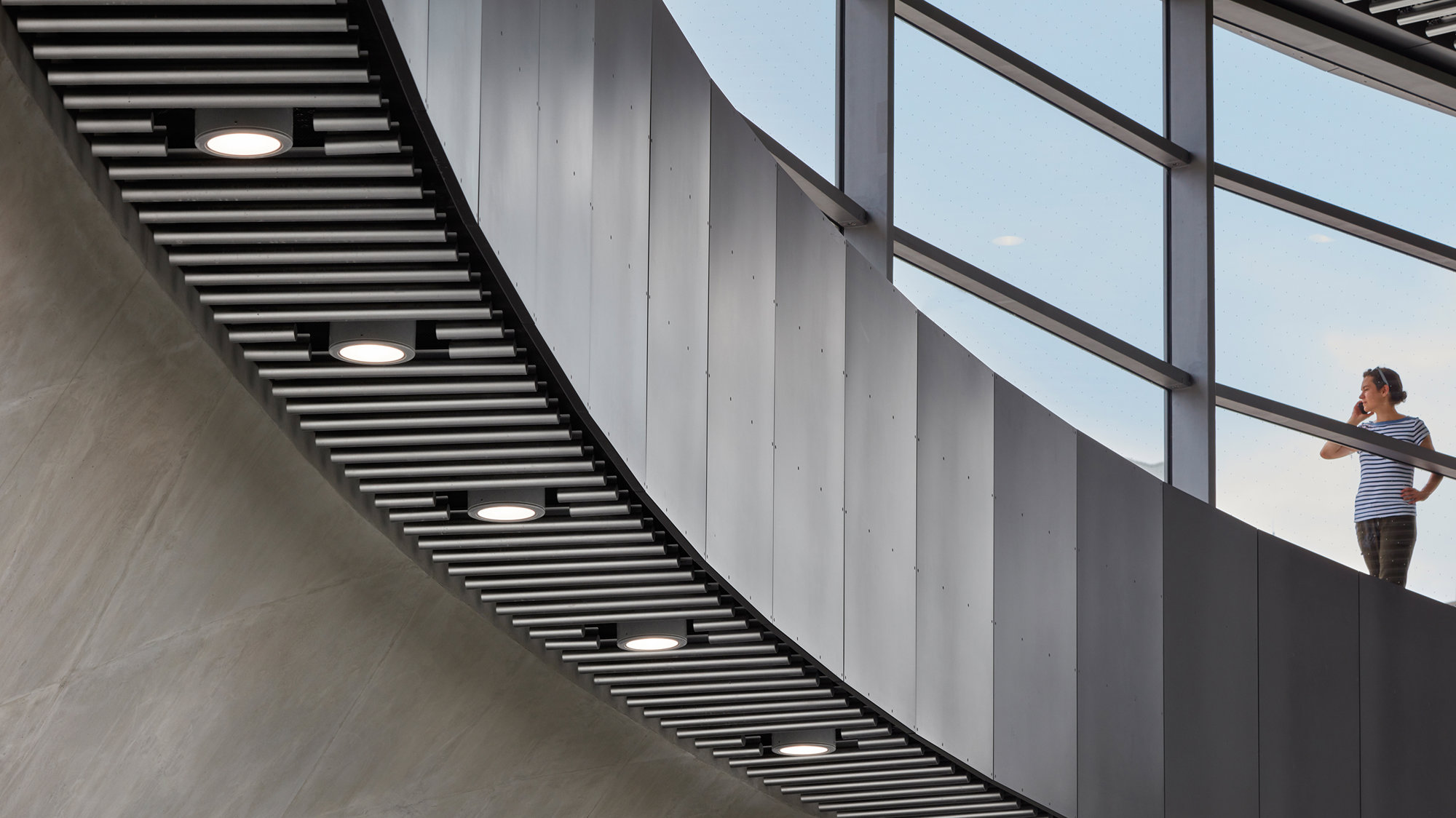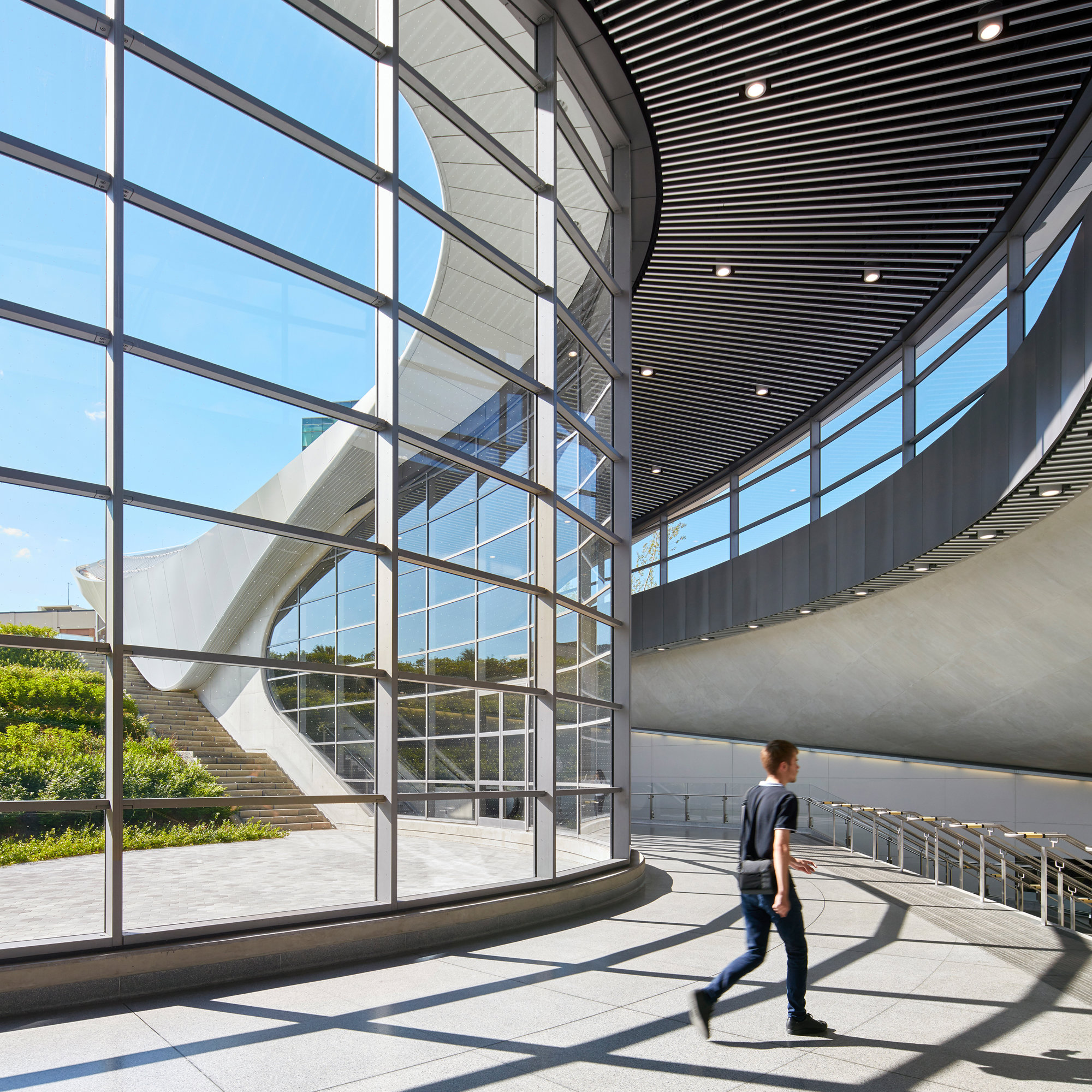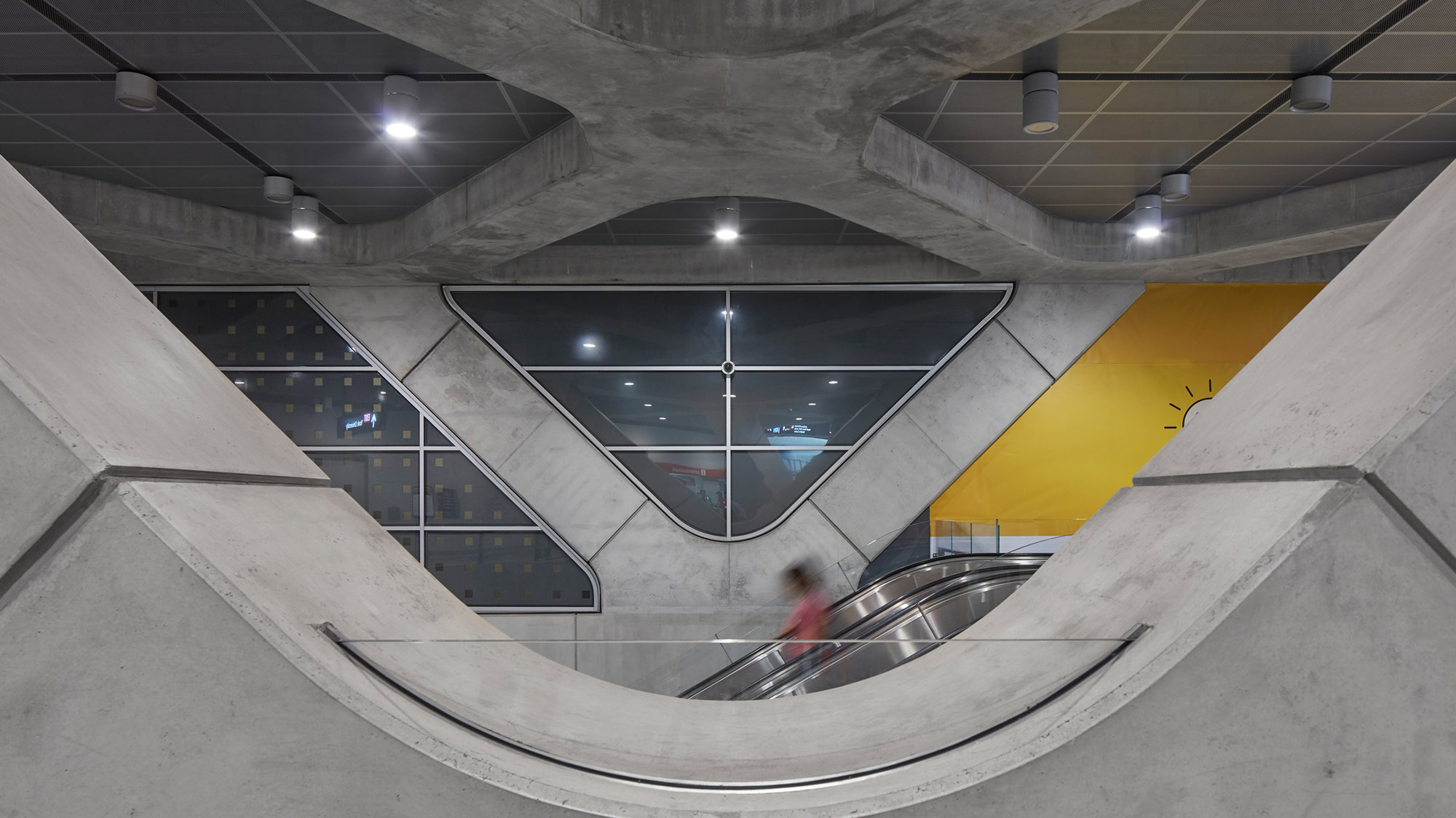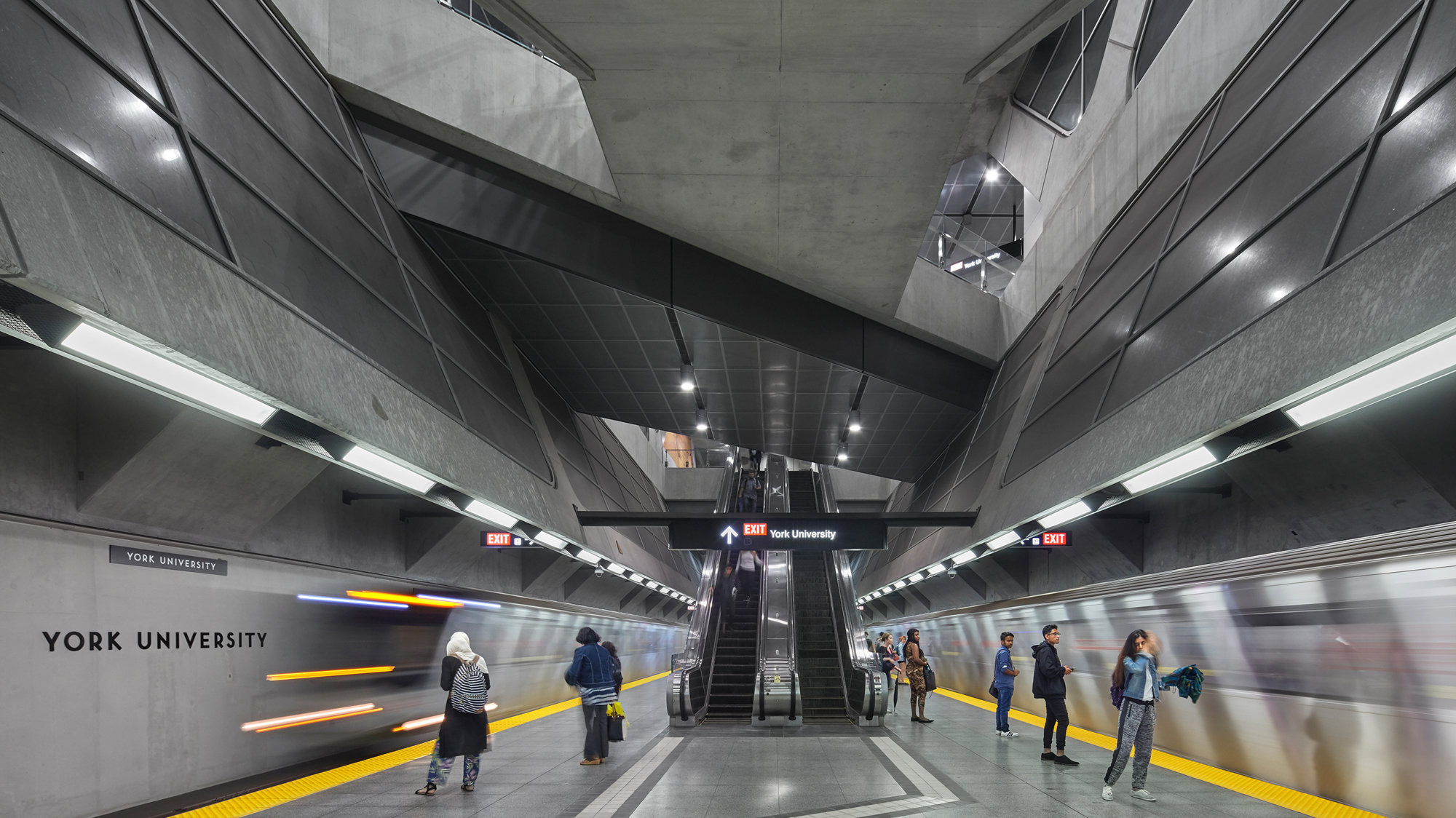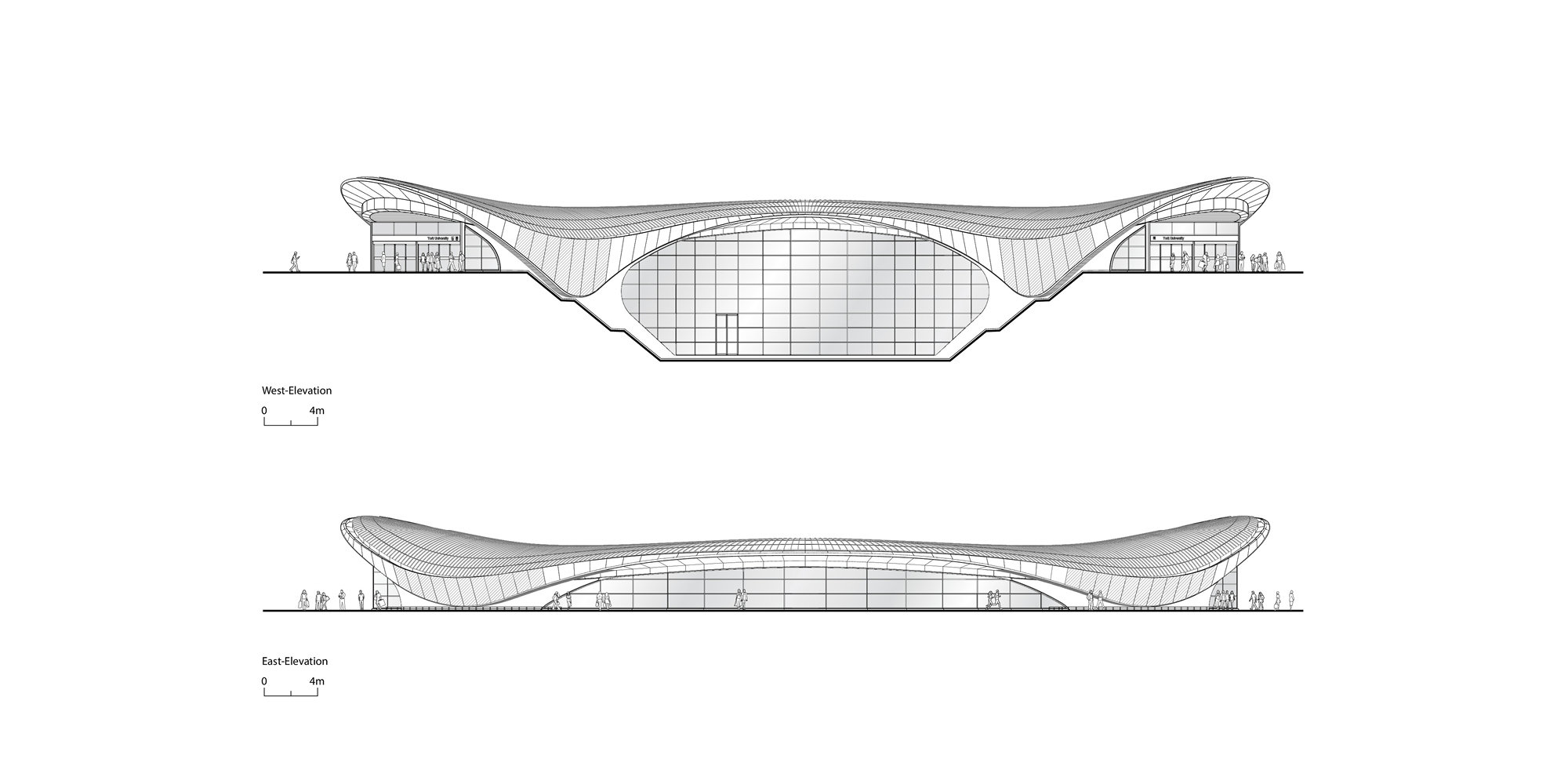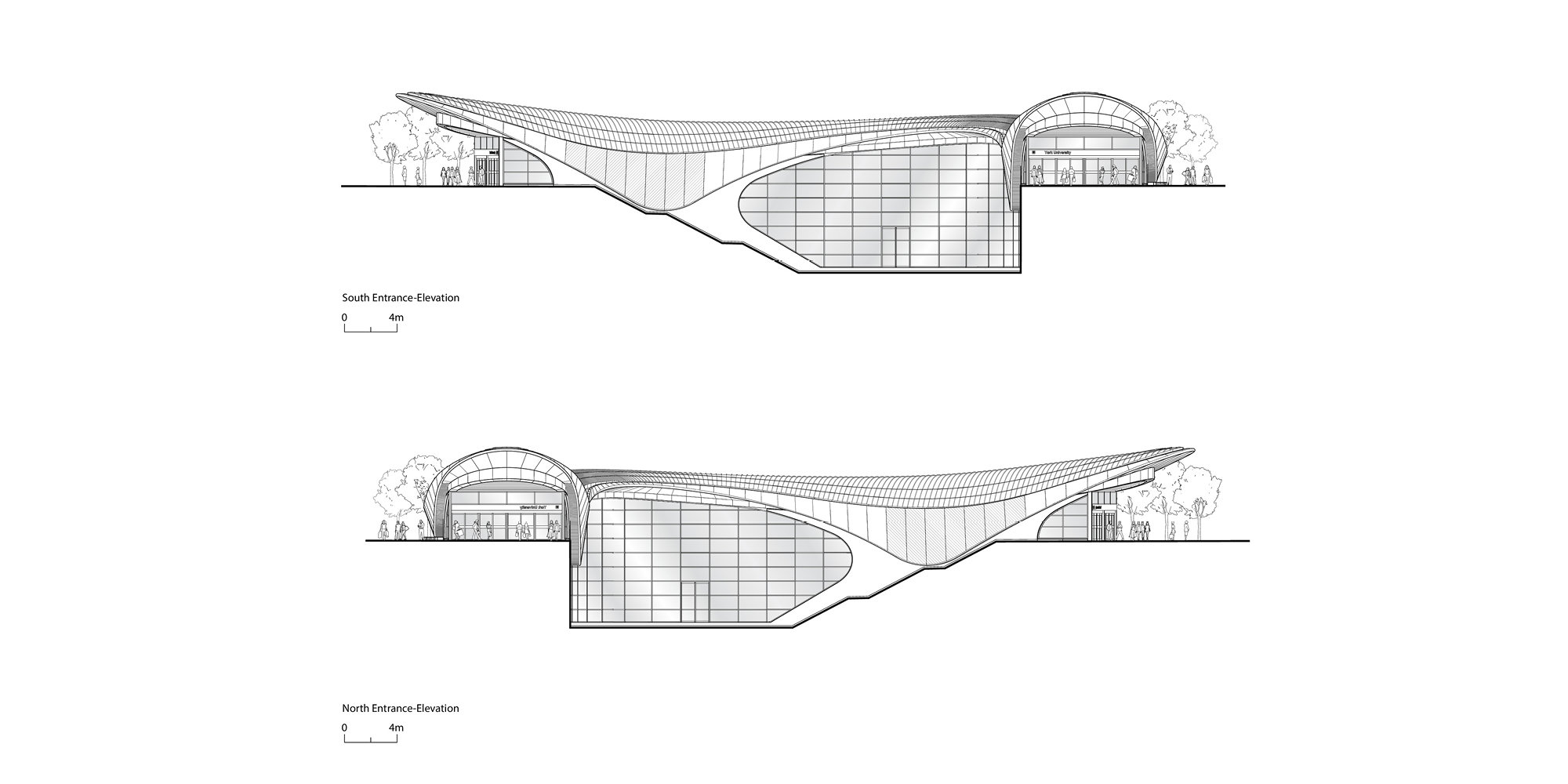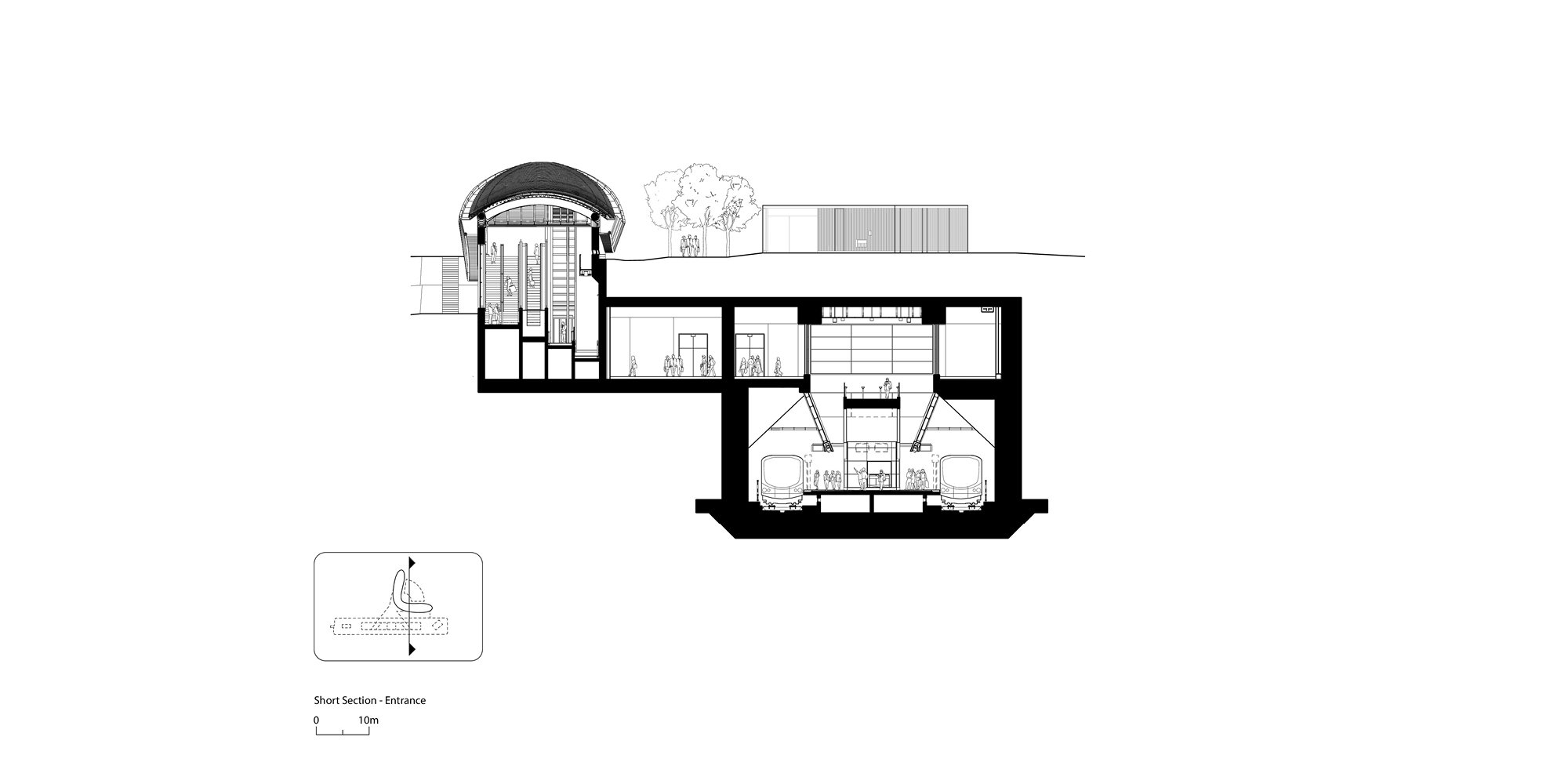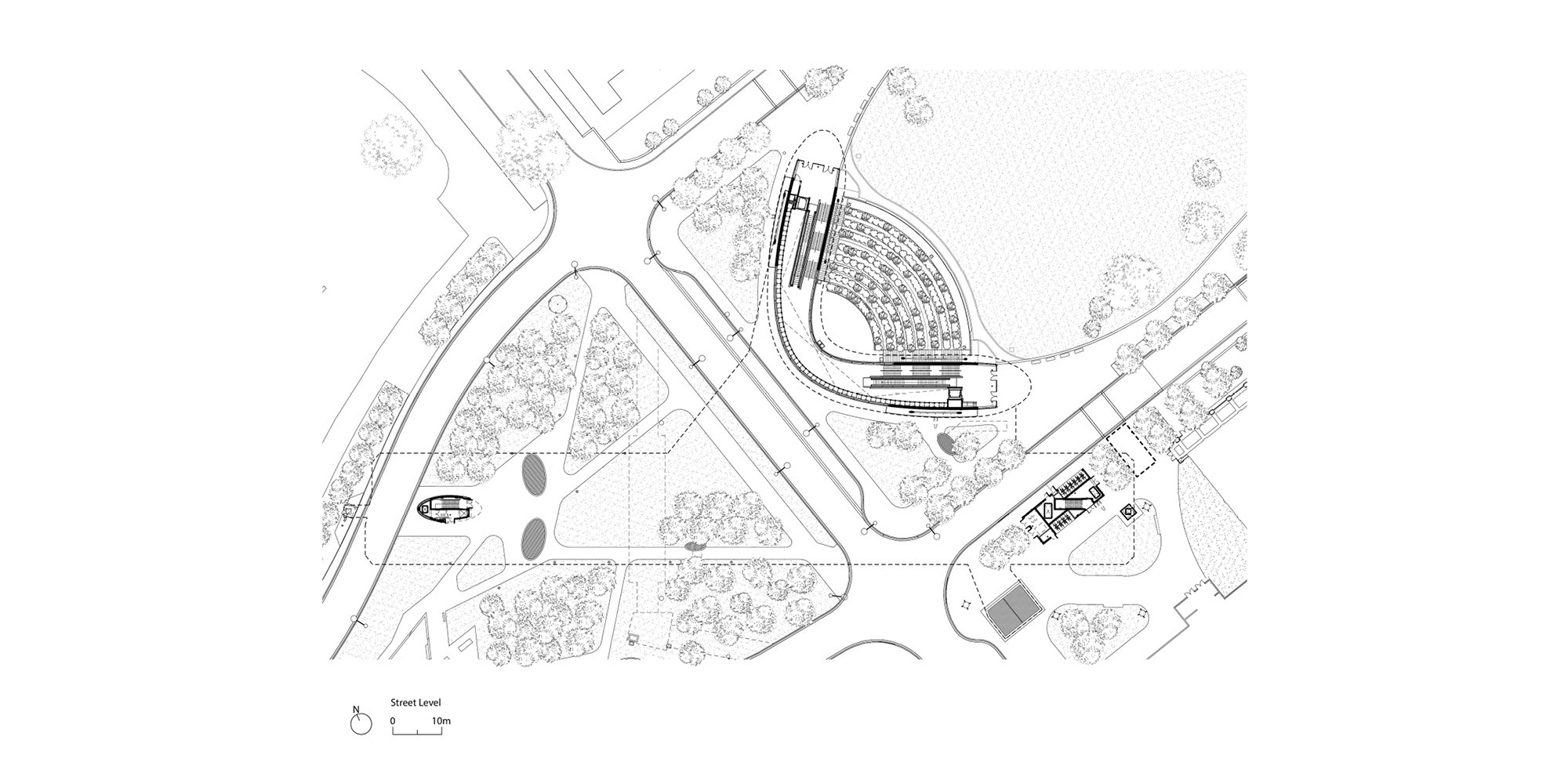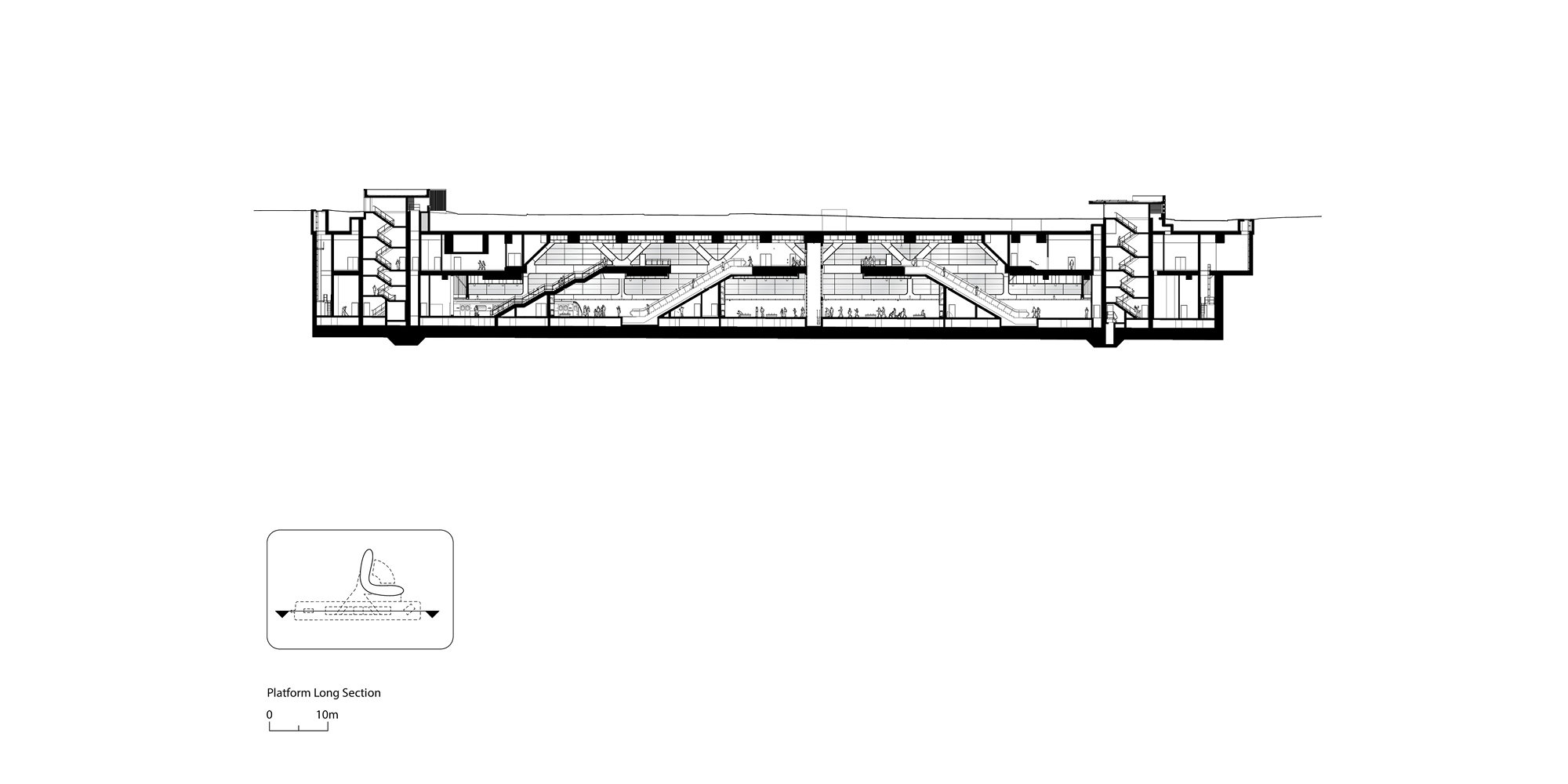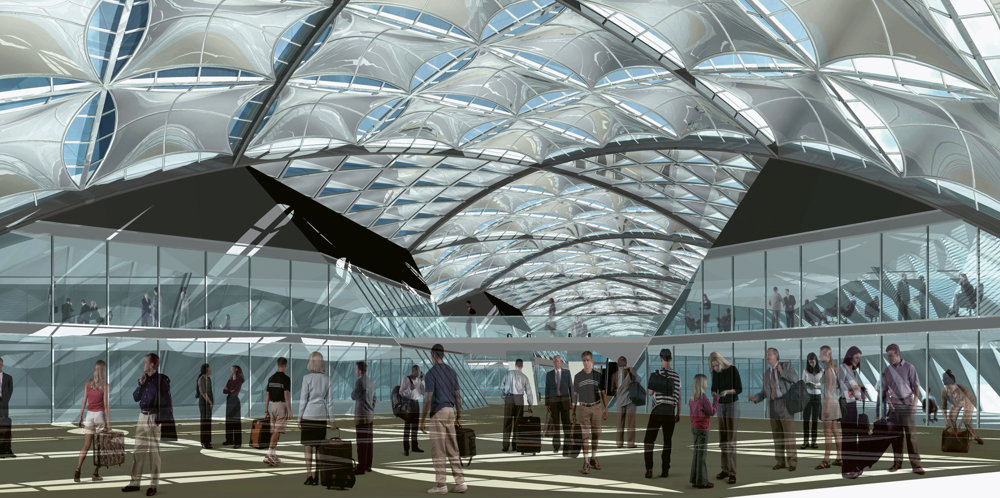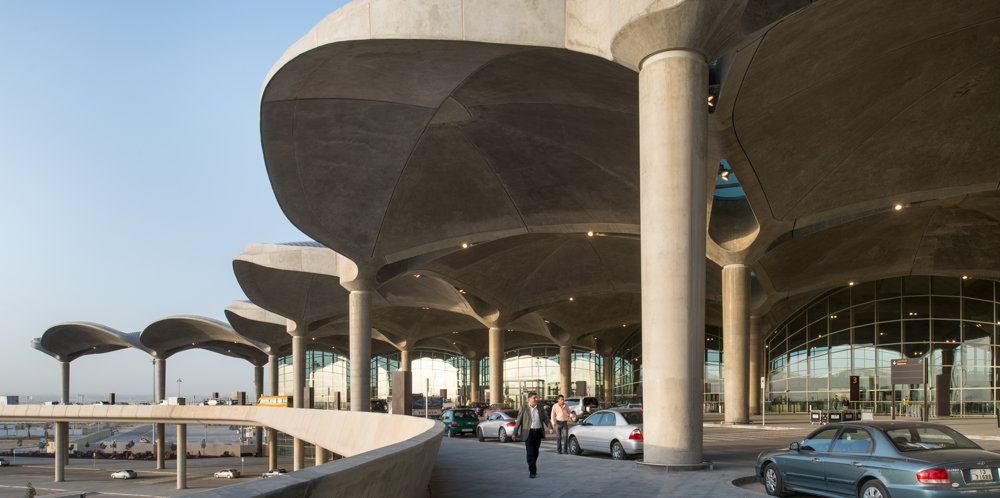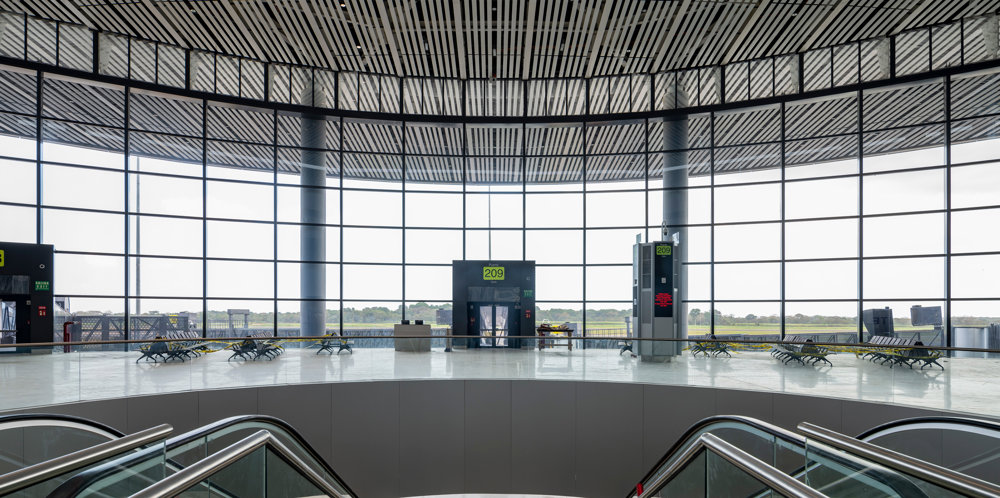York University Station develops themes first explored in underground stations for Canary Wharf in London and the Bilbao Metro in Spain: its design considers the surrounding public space and connections to the city, and uses natural light to intuitively guide passengers from the entrance down to the platforms. Located on the central axis through the campus, alongside the prominent Vari Hall, its striking roof canopy provides a new ‘front door’ for the university.
The station’s presence within the green setting of the Harry W. Arthurs Common is discreet. The building is sunk into the landscape, with the entrance placed at the base of a landscaped amphitheatre, where it is sheltered beneath a striking aerofoil roof canopy – the underside of the canopy is highly polished metal, reflecting the movement of people beneath. The double-height ticked hall is glazed on every side and filled with natural light. Its exposed diagrid coffered roof structure is supported by V-shaped columns, which maximise the open area. The trains are reached via three bridges, which lead to a choice of escalators, elevators or a staircase to platform level. Below the bridges, the walkways are surrounded by glazed smoke screens that pulse with light and were designed in collaboration with artist Jason Bruges.
Designed to comply with Toronto Green Standards, the building is entirely naturally ventilated, with mechanical back-up from the tunnel ventilation fans only in extreme conditions. To reduce the building’s embodied energy, locally sourced materials are used wherever possible. In addition, access is universal, with lifts integrated into the main entry sequence rather than placed separately. Due to the constraints imposed by the existing buildings next to the site, the station footprint is extremely compact and involves the resolution of significant engineering challenges in its construction, particularly in limiting the impact of construction on the daily life of the University community.
